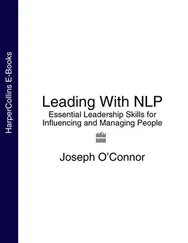John Gray - Children Are from Heaven - Positive Parenting Skills for Raising Cooperative, Confident, and Compassionate Children
Здесь есть возможность читать онлайн «John Gray - Children Are from Heaven - Positive Parenting Skills for Raising Cooperative, Confident, and Compassionate Children» весь текст электронной книги совершенно бесплатно (целиком полную версию без сокращений). В некоторых случаях можно слушать аудио, скачать через торрент в формате fb2 и присутствует краткое содержание. Год выпуска: 1999, ISBN: 1999, Издательство: HarperCollins e-books, Жанр: psy_childs, sci_pedagogy, Психология, на английском языке. Описание произведения, (предисловие) а так же отзывы посетителей доступны на портале библиотеки ЛибКат.
- Название:Children Are from Heaven: Positive Parenting Skills for Raising Cooperative, Confident, and Compassionate Children
- Автор:
- Издательство:HarperCollins e-books
- Жанр:
- Год:1999
- ISBN:978-0-06-133886-1
- Рейтинг книги:4 / 5. Голосов: 1
-
Избранное:Добавить в избранное
- Отзывы:
-
Ваша оценка:
- 80
- 1
- 2
- 3
- 4
- 5
Children Are from Heaven: Positive Parenting Skills for Raising Cooperative, Confident, and Compassionate Children: краткое содержание, описание и аннотация
Предлагаем к чтению аннотацию, описание, краткое содержание или предисловие (зависит от того, что написал сам автор книги «Children Are from Heaven: Positive Parenting Skills for Raising Cooperative, Confident, and Compassionate Children»). Если вы не нашли необходимую информацию о книге — напишите в комментариях, мы постараемся отыскать её.
Children Are from Heaven: Positive Parenting Skills for Raising Cooperative, Confident, and Compassionate Children — читать онлайн бесплатно полную книгу (весь текст) целиком
Ниже представлен текст книги, разбитый по страницам. Система сохранения места последней прочитанной страницы, позволяет с удобством читать онлайн бесплатно книгу «Children Are from Heaven: Positive Parenting Skills for Raising Cooperative, Confident, and Compassionate Children», без необходимости каждый раз заново искать на чём Вы остановились. Поставьте закладку, и сможете в любой момент перейти на страницу, на которой закончили чтение.
Интервал:
Закладка:
What’s wrong with you?
I’ve seen you do better.
What’s the matter with you?
You just don’t listen.
Parents incorrectly assume that when their children are making mistakes, not behaving or performing up to their expectations, they are not doing their best. Telling children that you think they are not doing their best is shaming. It is using disapproval as a way to motivate children. As we have explored, using guilt to manipulate children is not only unnecessary, but, for children today, it just doesn’t work.
Positive parenting recognizes that children are always doing their best. When they make mistakes, that is part of their learning process. When they are out of control, they are not getting what they need to be in control. Regardless of what children are doing wrong, at that moment, they are doing their best.
Positive parenting recognizes that children
are always doing their best.
Children don’t wake up thinking, “How can I do my worst today? What can I do to really fail? How can I disrupt my parents’ life and get them to hate me?” No one thinks this way unless they are deeply hurt and wounded. Even then, a child would be doing his or her best, albeit in a misguided manner, to get his or her needs met.
To do one’s best does not mean that one’s full ability has been expressed. It just means that based on your resources at that time, you did your best. Let’s take a simple example to make this point clear.
Yesterday, I did my best writing. I wrote thirty pages in one day. For many writers, this is really great. When I started writing this book, I did my best, but put out about three pages a day. Today, I was tired, but I did my best and wrote about five pages. One day I wrote three pages. Later in one day, I wrote thirty pages. Then the next day I wrote five pages. Yet, I was doing my best every day.
Considering this example, you will see that the result or outcome is not an accurate measure of doing my best. In a similar manner, it is a mistake to measure our children’s best by their performance. The secret for making it okay for our children to make mistakes is to recognize that they are always doing their best.
WHEN IT IS NOT OKAY TO MAKE MISTAKES
When making mistakes is not acceptable, children react in a variety of unhealthy ways. The following list contains four common ways our children react, when their mistakes are not accepted:
1.Hiding mistakes and not telling the truth.
2.Not setting high standards or taking risks.
3.Defending themselves by justifying mistakes or blaming others.
4.Low self-esteem and self-punishment.
These four reactions can be avoided when children get a clear message that it is okay to make mistakes. Children come into this world with the ability to love their parents, but they cannot love or forgive themselves. Children learn to love themselves by the way they are treated by parents and by the way parents react to their mistakes. When children are not shamed or punished for their mistakes, they learn that they don’t have to be perfect to be loved. They gradually learn the most important skill: the ability to love themselves and accept their imperfections.
Children learn to love themselves by the way
they are treated and by the way parents react
to their mistakes.
When parents apologize for their own mistakes, children automatically forgive. Children are preprogrammed to forgive their parents, but not themselves. If parents don’t make mistakes and then apologize, children will never learn how to forgive. If parents make mistakes and don’t apologize, children will blame themselves. Without enough practice forgiving their parents, children do not learn how to forgive themselves.
Self-forgiveness dispels the darkness of guilt. It is learned by having the opportunity to experience repeatedly that their parents make mistakes and are still lovable. When children see their parents as imperfect but still lovable, then at the age of ten when they suddenly become more self-aware, and thus aware of their own imperfections, children will not be so hard on themselves.
At about nine years old, children start feeling embarrassed when their parents do things they think are strange, for example, when Mother sings in the grocery store. As they become more self aware, they are suddenly more aware of what other people think. When children have been raised with a forgiving attitude, they are more forgiving of their own imperfections. Let’s explore in greater detail the four ways children react when it’s not okay to make mistakes.
HIDING MISTAKES AND NOT TELLING THE TRUTH
When children fear punishment or the loss of love in response to their mistakes, they learn to hide their mistakes. Rather than face punishment, they would rather hide what they have done and hope that they don’t get caught. This leads to lying.
This tendency to hide mistakes gradually develops a split inside. The child has to live in two worlds. In one world, she may be getting her parents’ love, and in the other, she believes that, if her mistake were discovered, she would lose love.
This has the impact of negating the love she does get.
When children do something wrong and hide their mistake, a part of them feels unworthy of their parents’ love.
Even when the parent does love, support, praise, or acknowledge the child, a little part of himself feels, “Yes, but you wouldn’t say that if you knew what I did.” This feeling of unworthiness continues to push away the love and support that is bestowed on this child. Although there is love to support him, he is unable to let it in. To the extent that children have to hide their mistakes, they will invalidate the real love and support that is available to them.
When children hide a mistake, a part of
themselves is unable to let love in.
Children depend on support from their parents to feel powerful and confident. When this support is cut off, the child becomes increasingly insecure. It is very wounding when anyone tells a child, “Now don’t tell your mother or father. This will be our little secret.” If the child doesn’t feel safe to reveal all to her parents regarding her mistakes or the mistakes of others, then a wall goes up separating the child from her parents’ support.
It is even more wounding when one parent demands that a child keep a secret from the other parent. It may even be a casual message, “Okay, I will give you this ice cream, but don’t tell your father.” This message brings the child too close to the mother and disconnects the child from the father.
It is even more wounding when the request for secrecy is backed by the threat of punishment. For example, when a child is mistreated by his father, the father may say, “I will hurt you if you tell your mother.” Unless this child tells the mother, the concealment is more wounding than the mistreatment that he received. Mistakes happen and can be healed, but if the child feels he can’t be open with his parents, then the healing stops.
CHILDREN OF DIVORCED PARENTS
Children of divorced parents often feel unable to share their feelings and experiences. When living in different homes, children must get the message that it is okay to talk about what happens at the other house. When it is not safe to share, a split occurs: They can only share a certain part of themselves at their mother’s house, and a different part at their father’s.
Children get the message that it is not safe to share when they tell a story to mom about dad, because mom gets upset or jealous and vice versa. As the child is describing what a fun time she had with dad at the fair, the mother is fuming inside that he didn’t make her do homework. Children can sense these disapproving messages and just stop sharing. To make matters worse, mom calls her ex-husband and complains to him. Next time the child does something fun with her father, the father may directly ask her to not tell mom.
Читать дальшеИнтервал:
Закладка:
Похожие книги на «Children Are from Heaven: Positive Parenting Skills for Raising Cooperative, Confident, and Compassionate Children»
Представляем Вашему вниманию похожие книги на «Children Are from Heaven: Positive Parenting Skills for Raising Cooperative, Confident, and Compassionate Children» списком для выбора. Мы отобрали схожую по названию и смыслу литературу в надежде предоставить читателям больше вариантов отыскать новые, интересные, ещё непрочитанные произведения.
Обсуждение, отзывы о книге «Children Are from Heaven: Positive Parenting Skills for Raising Cooperative, Confident, and Compassionate Children» и просто собственные мнения читателей. Оставьте ваши комментарии, напишите, что Вы думаете о произведении, его смысле или главных героях. Укажите что конкретно понравилось, а что нет, и почему Вы так считаете.












